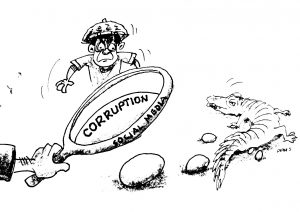Nowadays, social media has become an integral part of our society, influencing almost every aspect of our lives. Of the many roles that it plays, it can expose corruption and anomalies in various institutions, proving itself to be a powerful tool in holding individuals and organizations accountable for their unethical actions.
For one, it can facilitate quick and widespread dissemination of information. With just a few clicks, a piece of information can reach millions of people within seconds. This rapid spread of information has been instrumental in bringing to light various scandals and wrongdoings that might have otherwise remained hidden. For example, whistleblower accounts on social media platforms have led to the exposure of corrupt practices in government agencies and multinational corporations.
Social media provides a platform for individuals to share their personal experiences and stories of corruption. This grassroots approach to exposing wrongdoing has been particularly effective in bringing attention to issues that might have otherwise been ignored by mainstream media. With ordinary citizens becoming citizen journalists, social media has empowered communities to take collective action against corruption and anomalies in their midst.
Furthermore, social media has helped in creating a culture of transparency and accountability. Public figures and organizations are now under constant scrutiny on social media, which has significantly reduced the likelihood of getting away with corrupt practices. The fear of public backlash and damage to reputation has forced many individuals and organizations to reconsider their unethical actions and adopt more ethical practices.
Social media’s ability to quickly disseminate information, empower individuals to share their stories, and hold public figures accountable has made it a powerful force for transparency and accountability. As we continue to rely on social media for information and communication, we encourage its potential to shed light on corruption and ensure that those responsible are held accountable.




